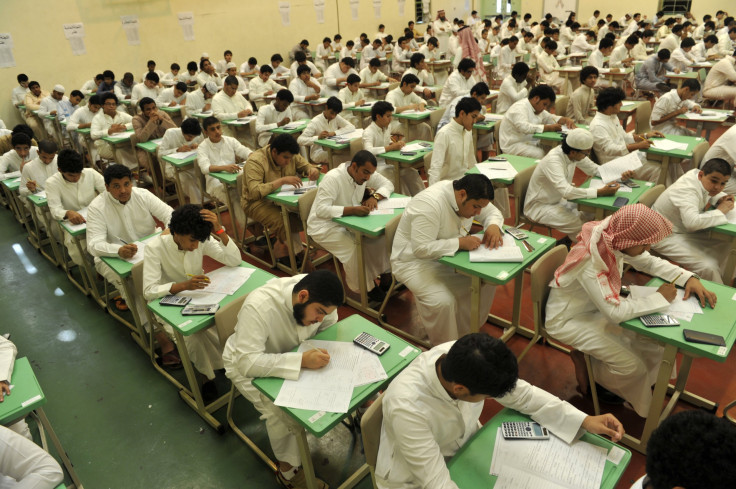Saudi Arabia Bans Books By Muslim Brotherhood Authors From School Libraries

Saudi Arabia's 13 million youth will no longer be able to access at school books penned by Muslim Brotherhood leaders. The country's ministry of education announced Wednesday a ban prohibiting all schools, academic centers and libraries from having 80 written works from authors like Hassan Al Banna, Yusuf Al Qaradawi and Sayyed Qutb, the Gulf News reported. Institutions have two weeks to turn the books over to the government.
The Muslim Brotherhood, an Islamist group founded in 1928, played a central role in the Arab Spring protests that have cropped up in recent years in countries like Egypt, Libya and Yemen. The group pushes for movement away from secularism, instead asserting: "Islam is the solution," CNN reported. The Saudi government designated it a terrorist organization in March 2014, though some experts have speculated that relations between the two could soon thaw.
Wednesday's decision may suggest the opposite. The ministry nixed books from the following people: Banna, one of the Muslim Brotherhood's founders, who wrote “The Ten Principles” and “Allah and the Islamic Faith”; Qutb, a central figure in the organization during the 1950s, who wrote “Shubhaat Hawl Al-Islam"; and Qaradawi, an alleged sympathizer of the Muslim Brotherhood, who wrote “The Lawful and Prohibited in Islam,” according to Arab News. Schools were also reportedly instructed to reject any resources not provided by the government.
Last year, Saudi Arabia banned all Muslim Brotherhood books from the Riyadh International Book Fair, claiming their content could "constitute a threat to intellectual security," the Middle East Monitor reported.
#Saudi Min of Ed bans AlBanna, Qutb, AlQaradhawi, AlMododi, etc Muslim Brotherhood books for being radical/terrorist https://t.co/ae4ELTOCO6
— Sultana (@SultanetZman) December 1, 2015
The nation isn't the first to cut out publications linked to the group. In June, the Egyptian government decided to remove any literature that failed to promote "the leniency of Islam," according to previous International Business Times reporting. But it wasn't just targeting the Muslim Brotherhood. Authorities announced they'd begin checking libraries in mosques and confiscating "any book, irrespective of its author or publishing house, that contradicts the teachings of Islam," one official told Daily News Egypt.
© Copyright IBTimes 2025. All rights reserved.






















